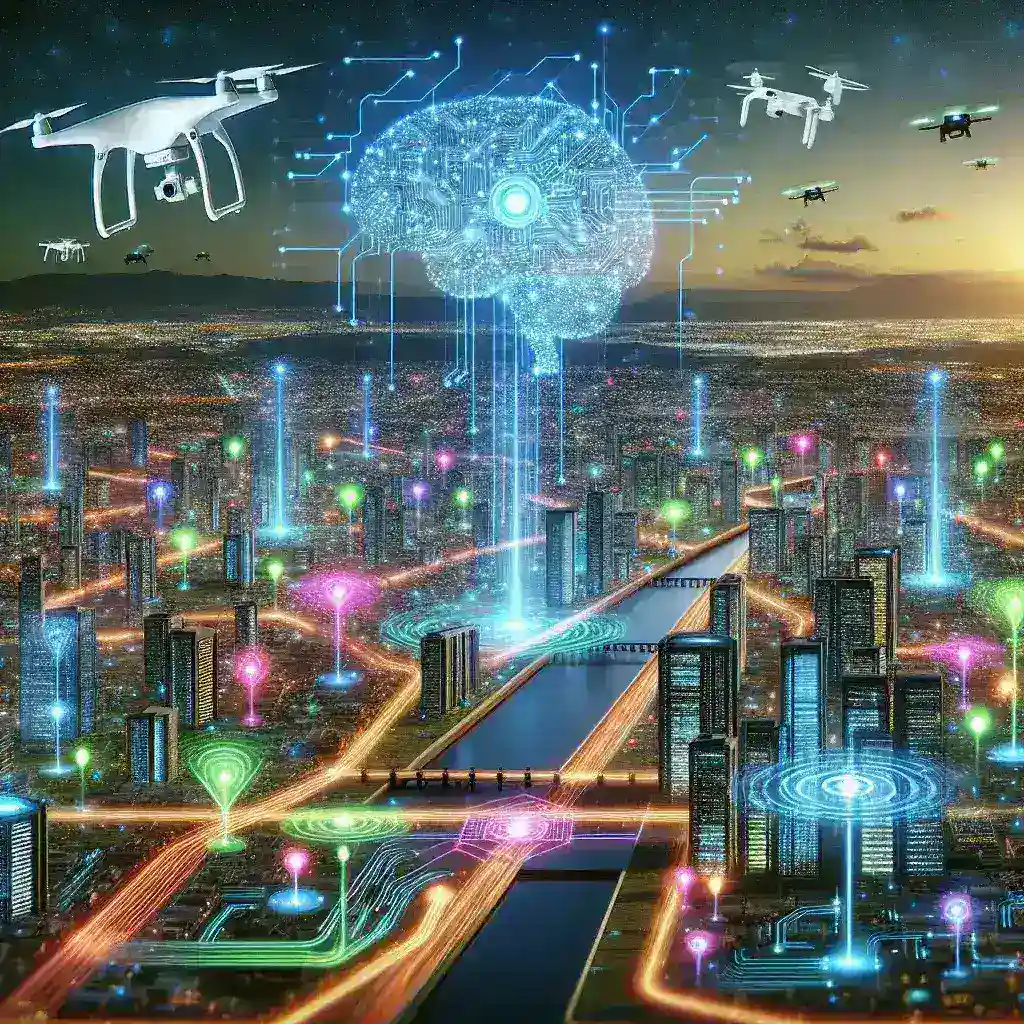Understanding Predictive Smart City Management
Smart city management leverages technology and data to improve urban living conditions. With increasing urbanization, cities face challenges in infrastructure, transportation, and resources. Predictive smart city management uses AI to analyze trends and forecast needs, enabling proactive decision-making.
The Role of AI in Smart Cities
Data Collection and Analysis
AI systems collect data from various sources such as sensors, cameras, and social media. This data is analyzed to identify patterns and predict future urban challenges.
Traffic Management
One of the significant applications of AI in smart city management is traffic optimization. AI algorithms process real-time data to adjust traffic signals, minimizing congestion and improving flow.
Benefits of AI in Traffic Management:
- Reduced Travel Times: Efficient traffic flow decreases the time spent on roads.
- Lower Emissions: Optimized routes lead to reduced fuel consumption and lower greenhouse gas emissions.
- Enhanced Safety: Predictive analysis can anticipate potential accidents and allow for timely interventions.
Public Safety
AI-driven systems monitor city environments to enhance public safety. For instance, predictive policing helps allocate resources where they are most needed, based on historical crime data.
Resource Management
AI helps in optimizing resource allocation such as electricity and water. By predicting usage patterns, cities can manage resources more efficiently, reducing waste and costs.
Improving Quality of Life
The main goal of predictive smart city management is to enhance the quality of life for residents. AI contributes by ensuring better healthcare, education, and accessibility through data-driven planning and services.
Challenges and Considerations
Despite the advantages, there are challenges such as data privacy concerns, the need for substantial investment in technology, and the importance of citizen engagement in the transition to smart cities.
Conclusion
AI in predictive smart city management represents a significant step towards building sustainable, efficient, and livable urban areas. By leveraging advanced data analytics and machine learning, cities can prepare for the future and address the complexities of urban living.








Leave a Reply